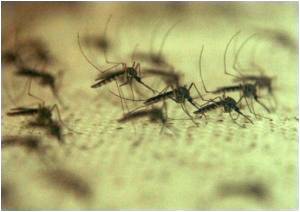
The research was prompted by a US government proposal to slash funding for the vector-borne disease program of the Centres for Disease Control and Prevention.
"This analysis provides scientific-based evidence of the need for more funding of mosquito surveillance, not less," said Uriel Kitron, a co-author of the study.
The study analysis used data from two outbreaks of dengue fever in Cairns, Australia, that occurred in 2003 and 2009.
A mathematical model was applied to the Cairns data to evaluate the economic impact of hypothetical epidemic curves, plotted against different response times.
A response within two weeks of the introduction of the pathogen was assumed to occur with active disease surveillance in place, and delays of six-to-eight weeks were assumed when active disease and vector surveillance were eliminated.
Advertisement
The costs of the epidemics - including vector control, case diagnosis; blood screening and workdays lost to disease - totalled U.S.150, 000 dollars for the 2003 outbreak and 1.1 million dollars for the 2009 outbreak.
Advertisement
The Public Library of Science published the report.
Source-ANI











